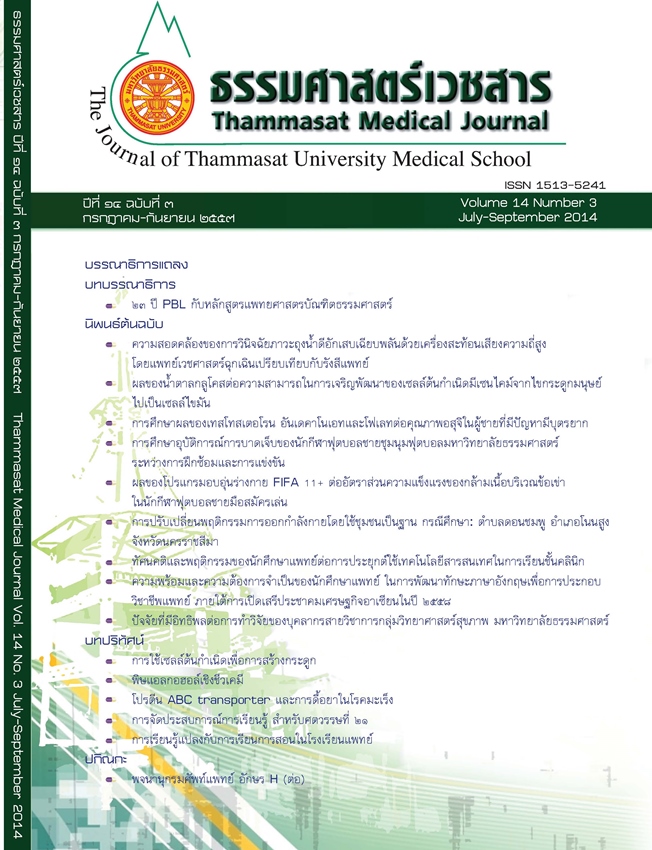Community-based exercise behavioral adaptation case study: Donchompoo sub district Nonsung district Nakhonratchasima province
Keywords:
Behavioral adaptation, Exercise behavior, Community-based interventionAbstract
Introduction: Community-based exercise behavioral adaptation was resulted from the needs of the community which most of the community members did not exercise regularly. The objective of this study was to contribute the exercise behavioral adaptation base on community participated.
Method: This study was action research in moo 1 Donchompoo sub district Nonsung district Nakhonratchasima province. The population of this study was divided into three groups—exercise leaders, general community members, and elderly people. The samples were selected by stratified random sampling. The total number of sample was 206. The study performed during July - September 2011. The instruments in this study were consisted of an interview protocol and an exercise skill assessment form. Data were analyzed by means of descriptive statistics of percentage, mean, standard deviation, as well as inferential statistics of T-test and Chi-square test.
Results: After community-based exercise behavioral adaptation, this study showed that most of the general community members (81%) had a high level of correct knowledge of exercise, and all exercise leaders (100%) had correct exercise skills. For exercise behavior, exercise leaders had more exercise behaviors, accounting for 87.5% of the total. Before and after the community-based exercise behavioral adaptation, the levels of knowledge of exercise of all three groups of samples were different with statistical significance at the 0.05 level. Also, the proportions of exercise of all three groups of samples before and after the community-based exercise behavioral adaptation were different with statistical significance at the 0.05 level.
Discussion and Conclusion: The general community members and the elderly people had more knowledge and exercise behavior due to proactive knowledge dissemination and home visits conducted by exercise leaders.
Key words: Behavioral adaptation, Exercise behavior, Community-based intervention


